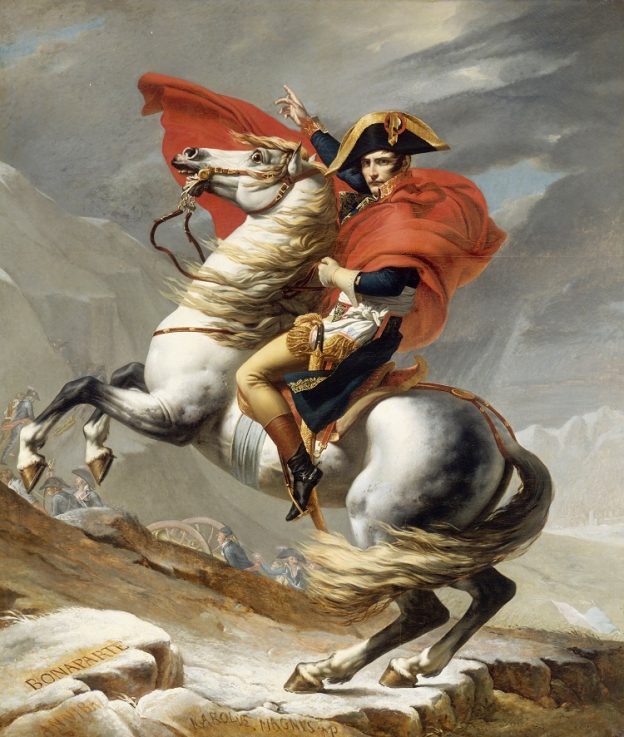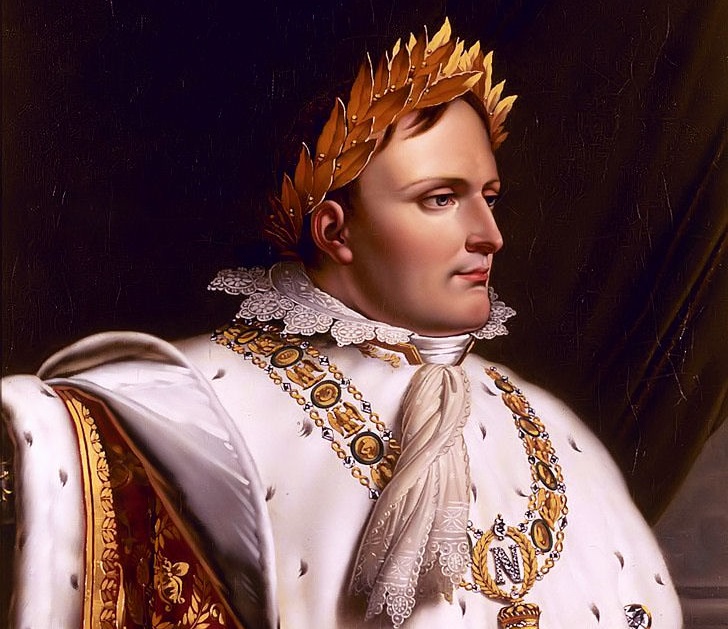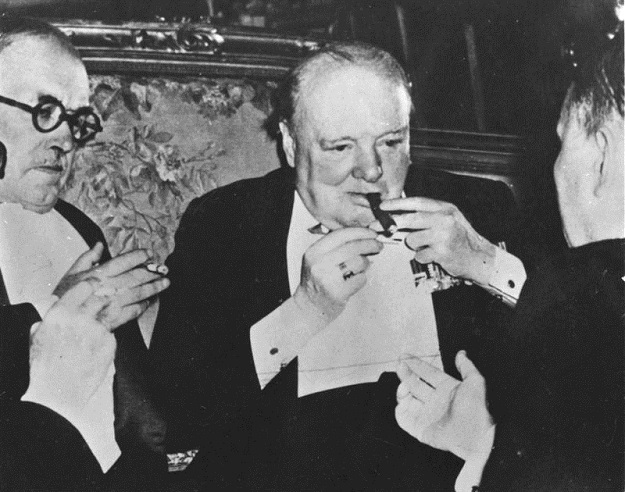
The Rise and Fall of Napoleon
They called him Napoleon the Great.
His list of achievements is staggering: He restored order in post-Revolutionary France. He abolished feudalism and serfdom, established legal equality and religious tolerance, and created an Egalitarian system based on the highly controversial idea that government jobs should go to the most qualified!
He was a military genius who reinvented the art of warfare, won some forty battles, and came dangerously close to total domination of Europe.
So how did Monsieur Bonaparte achieve all this?

The most important thing to remember about Napoleon’s rise to power is that it would never have happened, if it hadn’t been for the French Revolution.
Napoleon was a nobody from Corsica, a Mediterranean island that had recently acquired by France, and in pre-Revolutionary France only men from the French aristocracy were allowed to rise to the upper echelons of the military.
But fortunately for Napoleon (and less fortunate for the French aristocrats!) the revolution broke out and it presented Napoleon with a once in a lifetime opportunity to break through the glass ceiling.
He seized the moment and supported the revolution from the beginning. His brilliant talent for winning battles meant that he quickly rose through the military ranks as he beat the Royalists again and again.
His success as a military man gave him political clout. He used his influence to first become consul, then consul for life, and finally nothing less than “His Imperial Majesty the Emperor of the French”.

So what can we learn from this?
The first lesson is that skills are everything, and without skills you are going nowhere.
Napoleon used all his pre-revolutionary career to build his incredible military skills. Even if the French Revolution had never happened, Napoleon could still have had a decent (but less memorable) career by growing his talents into incredible strengths.
The second lesson is that turbulent times always bring new opportunities with them, because they shake up the status quo.
Yes, turbulence is often frightening (as the French Revolution without doubts was) and many people will be paralyzed by fear and be involuntary pulled along by an unstoppable force of change. But Napoleon seized the changes, jumped to the front and let the forces push him forward.
So what can we learn from this? That you should just take it easy, enjoy the good life, and hope that opportunity will someday come knocking on your door?
No, my friend!
It’s true that the future is so hard to predict that it’s almost impossible to know what opportunities will come by or when. To paraphrase Monty Python: “Nobody expects the French Revolution!”
But it’s also true that turbulent times almost always bring new opportunities with them.
So in turbulent times you should rely less on long-term planning, but instead learn to lookout for opportunities. For opportunities are easily missed because, as Edison said, they are often dressed in overalls and look like hard work.
So what should you do while scanning for opportunities?
You should get to know your talents and practice them until you reach mastery, like Napoleon did with his military talents. So when the opportunity arrives, you know exactly how a person with your strengths should chase it and you can seize it with everything you got!

Now, as you might know, one of Napoleon’s more recent honors has been to be immortalized in an ABBA song. But wait a minute, you might think, wasn’t this song about his defeat and surrender at Waterloo?
How did an extraordinarily gifted man, who followed the first two lessons to the letter, end up being utterly defeated by his enemies?
The short version is that Napoleon’s brilliant victories in the first part of his career gave him a false sense of invincibility and this made him arrogant and sloppy. He started wars that he should have stayed out of, and he no longer applied his tactical genius with the same vigor as in his earlier battles.
So the final lesson from Napoleon’s amazing life is that when you have become successful, you must be wary of the arrogance that success often breed, and remember that “all glory is fleeting” as they used to say to victorious generals in Ancient Rome.


Nice post. Thanks for sharing a great info with us